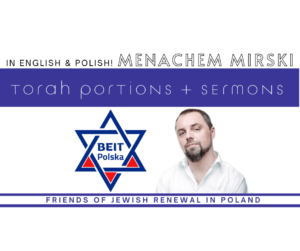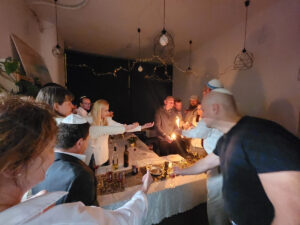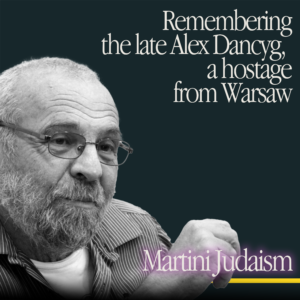BE SURE TO VIEW OUR UPCOMING WEBINARS AND MARK YOUR CALENDAR!
One Will Be Mightier Than the Other
Thoughts on parashat Toldot 5785
Human history is, to say the least, complicated. While our tradition explicitly teaches us how to distinguish between (objective) right and wrong and (objective) good and evil, the historical fate of human communities and historical processes are rarely black and white. They are sometimes – we have no doubts that Nazi Germany had to be defeated in order bring peace, stability and growth to the world, but most of the time historical realities are more complex and nuanced. For this exact reason our tradition focuses on ethics and notions of right and wrong, good and evil – it is to give us tools to judge an infinite number of social and historical realities and to navigate within them…
A Perfect Match in an Imperfect World
Thoughts on Parashat Chayei Sarah
Unfortunately, one of my senior-congregant from my synagogue, Temple Beth Shalom, Bill Milman, passed away a week ago. He was buried on Sunday and then I led the shiva minyan for a few days to support his wife and family. On one of the evenings his wife, Ann, reflected on the beginnings of the Tot Shabbat program at my temple. She poignantly noted that our focus should not be only on preserving tradition or catering to the preferences of longtime members, but rather on genuinely understanding and responding to the needs of today’s parents and their children. Her words resonated deeply with…
Tower of Babel Hierarchy and its Dangers
Thoughts on parashat Noach 5785
At the end of parashat Noach we have a story of the T ower of Babel. This story has been and
can be understood in a variety of ways. Let me suggest yet another take on it, starting with the
following statement: The T ower of Babel represents an overgrown hierarchy in society. The
existence of hierarchy like that, in a completely natural way, increases the distance between the
strata in society, between the classes in the society and creates a situation in which those on
top begin to speak a different language than those on the bottom. Language is understood here
metaphorically as a means of communication that is lost.
The Emerging Jewish Community in Poland
On Yom Kippur Rabbi Jeffrey Salkin shared his deepest optimism for the future of the Progressive Polish Jewish community. The Rabbi Michael Signer Clergy Cabinet program supported the travel and hospitality expenses for Rabbi Jeffrey Salkin’s volunteer visit to Poland during the Days of Awe.
Expressions of Solidarity with Israeli Hostages
The Rabbi Michael Signer Clergy Cabinet program subvented the travel and hospitality expenses for Rabbi Jeffrey Salkin’s volunteer visit to Poland during the Days of Awe. Please take a few minutes to read his Yizkor Yom Kippur sermon, Remembering the late Alex Dancyg, a hostage from Warsaw.
- « Previous Page
- 1
- …
- 4
- 5
- 6
- 7
- 8
- …
- 142
- Next Page »






















